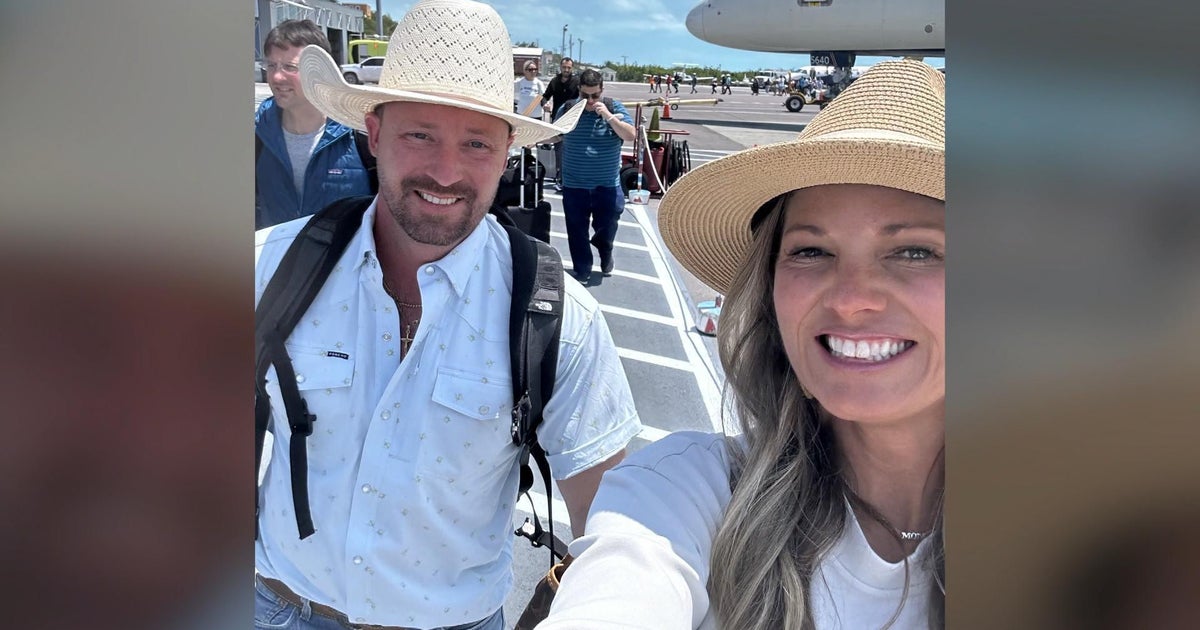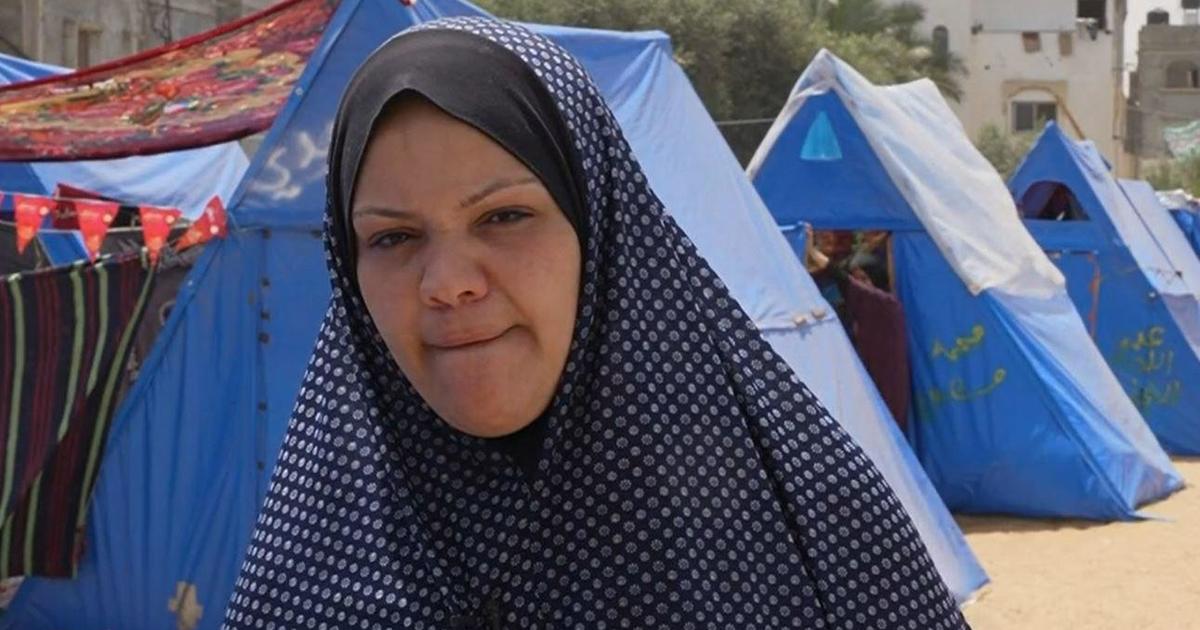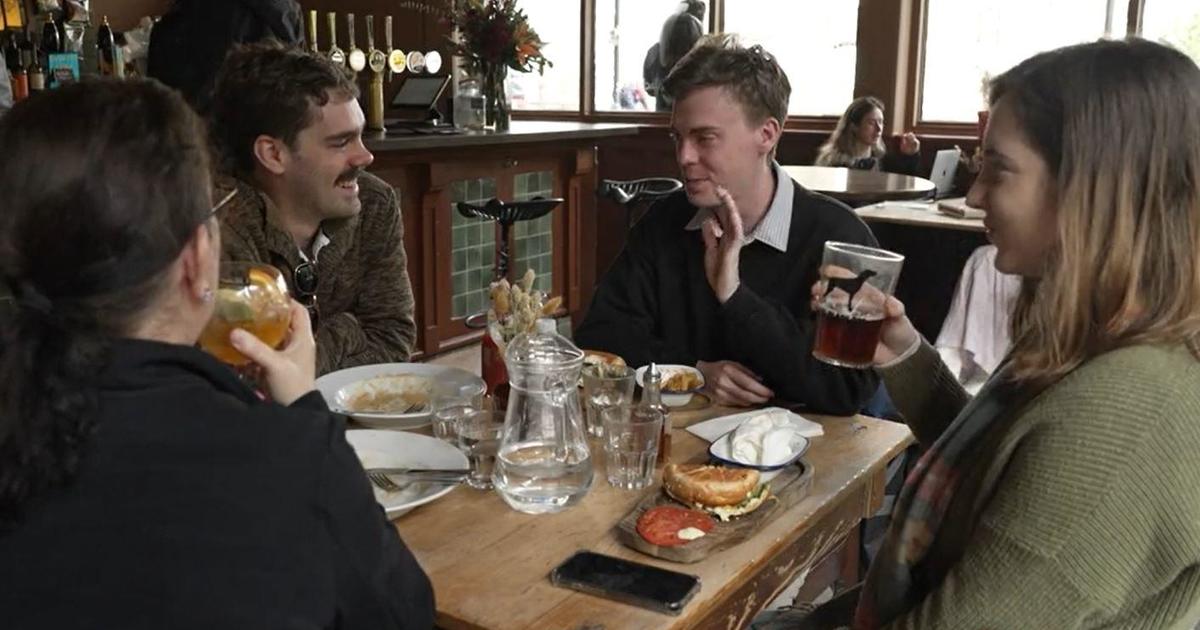ICYMI: Top takeaways from this week's "Face the Nation": Local leaders on new COVID spike stress
This week on "Face the Nation", a disturbing 4th of July weekend as the coronavirus wildfire continues to spread and the president's fiery rhetoric divided, rather than united, America.
Here's the big takeaways from Sunday's episode of "Face the Nation"
1. Mayors in COVID-19 hot spots speak on spikes
- Houston Mayor Sylvester Turner warns that his city's hospital system could be "overwhelmed" in about two weeks if the current rate of infection and hospitalization due to COVID-19 continues. He said there are enough beds for patients but they will not be enough doctors, nurses and medical professionals to treat them. The Mayor traces back the outbreak to the second week in May which is when he says cases started to increase.
- What Turner said: "We need everybody from the federal level, state level and local level. The demand for testing in this state, in this city has increased quite a bit. But we- and we are trying to ramp up. But the demand exceeds the capacity. At the two major testing sites that we have that's out- where we are partnered with FEMA, we can test up to about 650 per day at each one of those sites. We are reaching capacity at about noon. We have opened up some additional testing sites in many of what I call our at-risk, vulnerable communities. But there is a tremendous demand and then there is a wait time for that testing and to get the results back. So we are increasing the testing, but we are also finding and what's most disturbing is that the positivity rate has increased. So a month ago, one in 10 tested positive. Today, we're looking at almost like one in four."
- Who is getting sick? "Look, this virus is an equal opportunity abuser. It will inflict anyone who comes in close proximity with it. Now it's having a disproportional impact on people of color. And right now, it's especially within the Hispanic community. But we are having young people being impacted as well. Just the other day, I now saw a young woman in her 20s with no underlying medical conditions that died as a result of COVID. So it's anyone from their 20s into their 90s being impacted. If you come together in close proximity, you will fuel this virus. And now one in four people are testing positive for this virus. It's a serious issue, and we need to control it."
- Miami-Dade County Mayor Carlos Gimenez traces back the spike in COVID19 positivity rates to "late May, early June" which is when he says his residents "let their guard down." He pins that on the Black Lives Matter protests, which he said, "had a lot to do with it" as well as young kids going to parties.
- The Mayor said he is taking stringent actions such as instituting a curfew, mandating mask wearing, shutting down the beaches over the holiday weekend, and stopping alcohol sales at 8pm at hotels in order to stop the spread. It is not just an infection spike, people are getting very ill.
- "We have had- seen an increase in the number of hospitalizations. We have seen an increase in the number of ICUs and also an increase in the number of ventilations simply because we have a- more of our people are actually testing positive, which indicates more of the people of Miami-Dade County are coming up with COVID-19. And so when you have more, you obviously will have more hospitalizations, more ICUs, more respirators, and unfortunately, you'll have more fatalities."
- Why what the Mayors say matters: The virus is spreading. It is not just infecting people but it is getting them so ill that they have to be hospitalized. These eyewitness accounts on the ground contradict President Trump's message to the country that 99% of COVID-19 cases are "totally harmless."
2. Gottlieb issues starkest warning yet on COVID-19
- Former FDA Commissioner Dr. Scott Gottlieb issued one of the most concerning forecasts that he has delivered on FTN in the course of this pandemic along with a call for government action. He said "it's not a clear line of sight on how we're going to get this under control."
- What Gottlieb said: "There's only a handful of technologies that may be available between now and the end of the year. Remdesivir is one of them. We have enough of the drug if the epidemic stays at its current level and we continue to use remdesivir as it's approved for patients who are more sick and hospitalized. But if the epidemic worsens and we want to extend use of the drug to patients who aren't as ill but have pre-existing conditions, that predict that they may become very sick, we don't have enough drug for that. And that's what we would have wanted. We would have had to set the groundwork for that months ago and we didn't do that. I think right now we need to be planning for other drugs that may become available this fall, like the therapeutic antibodies, and make sure we invest right now in manufacturing capacity and have a coordinated strategy on that so we can have them if those drugs do become available.
- A call to action: "I think we need a more coordinated national strategy around this. There's things the government can do to either pay companies not to produce certain drugs or try to consolidate manufacturing for products we don't really need right now, or maybe boost manufacturing in the short term and freeze some of those drugs, put them on hold so you can free up the domestic manufacturing capacity. We don't have a lot of excess domestic manufacturing capacity for these drugs. So we need a strategy to try to free that up. And it doesn't mean the government steps in and uses the Defense Production Act to take over facilities. There's ways that they can work with companies to try to coordinate this. That's what should be happening, particularly around the antibodies.
- What about existing drug treatments? "We missed the window to do it on remdesivir. Because that drug has a long manufacturing cycle, we're unlikely to build ramp up supply between now and the end of the year. And that's when we would have needed it because we face a hard fall. We're going to take all this infection into the fall and winter. It's not clear that it's going to get better. We're going to have epidemics that- that come and go across the nation in different cities. They'll light up at different times. But we're not going to really be able to crush this virus at this point because there's just so much infection around."
- Why it matters: With no clear line of sight to get the virus under control, former FDA commission said Americans will become more dependent on technology to solve the problem. He issued a call to action but warned that he does not see the political will necessary to jump start a pipeline of necessary drug production to treat patients.
- Virus lethality vs. deaths due to virus: What's the most accurate read of where we are today? Gottlieb warned that the total number of deaths due to COVID19 is about to go up as hospitalizations start to spike again. The good news is that since more is known about the virus now than when it first hit the U.S., the doctors treating patients in new outbreaks do have the benefit of more tools and knowledge than they did a few months ago. For the most accurate view, Dr. Gottlieb advised it is important to separate the total number of deaths from the actual case fatality rate.
- How Gottlieb explains it: "We need to separate the number of deaths going down from the actual case fatality rate, how lethal is this? The case fatality rate is going down, although we're not able to measure it right now because we're able to save more people who are hospitalized and get critically ill because of advances in care. The number of deaths has gone down because the number of infections went down for a period of time. And more of the new infections right now are in younger people. And we're protecting more vulnerable populations like people in nursing homes. But the total number of deaths is going to start going up again as the number of hospitalizations starts to spike again. So we're going to see deaths creep up. And I wouldn't be surprised in the next two weeks to see deaths go over a thousand."
- He points out, however, "That doesn't mean the case fatality rate, the actual death rate isn't declining. But when you have more infections, even if the death rate is declining, you're going to get more deaths tragically. So if we cut the death rate in half, if we make this half less lethal than it was, but we double the number of infections, we're going to get more deaths. And I think we're going to start to see that. So we shouldn't just focus on the crude mortality rate, the number of deaths to tell the story of what's happening medically. Medically, we are improving. But we just have so much infection around this country, we're going to see, unfortunately, a lot of lethality."
- Gottlieb also did not understand what President Trump was talking about when he claimed that 99% of COVID-19 cases at "totally harmless."
- What Gottlieb said: "Well, I'm not really sure what he's referring to. He might be referring to the number of people who get hospitalized based on the number of people who get infected, which is probably less than five percent when you count all the asymptomatic infection and infection in young people that might not be- be getting diagnosed. But certainly more than 1% of people get serious illness from this. About 60% of people who get infected become symptomatic. About 10 to 15% of them will develop some form of COVID pneumonia and somewhere around two to 5% might get hospitalized, depending on what the age mix is of- of the people who are getting infected. So this is still a pretty bad virus."
3. Zandi: COVID spikes make for harder impact on overall economy
- Moody's Analytics Chief economist Mark Zandi pointed out that the states where there are COVID-19 spikes have a massive impact on the overall U.S. economy. He estimates that California, Texas, Florida and Arizona account for "over a fifth of the economy, probably closer to a third of the economy."
- He predicts that the pullbacks there due to these new outbreaks will dampen what had been newly promising economic data. He issued a call for Congress to craft more emergency help.
- Why it matters: "If Congress and administration don't get it together in the next few weeks before Congress goes away on its August recess, I fear we're going back into recession because the economy needs a lot of help," says Zandi.
- Specifically, what needs to happen: "They have to provide support through- to- support for child care on the other side- during the pandemic and once schools, during the summer and if schools don't reopen. So there has to be additional support there. You know, there's different ways of providing that support, direct aid to people who are unemployed or, you know, through unemployment insurance or through the tax code. There is a child tax credit that could be used to make it refundable to different households so that they can get cash back if they have child care needs. But, you know, all those things need to be part of any additional support that Congress comes forward with. And hopefully, again, they come forward with that quickly here. "
4. Travel industry's future according to TripAdvisor
- According to TripAdvisor CEO Stephen Kaufer, Americans who can afford to travel this summer are most concerned about the safety of a potential trip. In other words, how businesses handle the COVID19 safety risk connects to consumers' willingness to spend money with them. Would President Trump's idea of giving Americans' a tax credit to travel make a difference?
- What Kaufer said: "I think everyone in the travel industry is really, really concerned about this slip backwards that we've now seen the U.S. and what's best for the travel industry, at least my opinion, is really getting the pandemic under control. And that isn't about a tax credit for someone to take a vacation. It's really about leadership from our federal government, from the state governments, from local governments, all telling people to do the basic things that everybody needs to do to keep us all safe. That's what to get travel going again in this country."
- Why it matters: Economic and physical health are in tandem and not in competition.
Missed Sunday's episode? Click here to watch the show. "Face the Nation" airs Sunday mornings on CBS. Click here for local listings.




